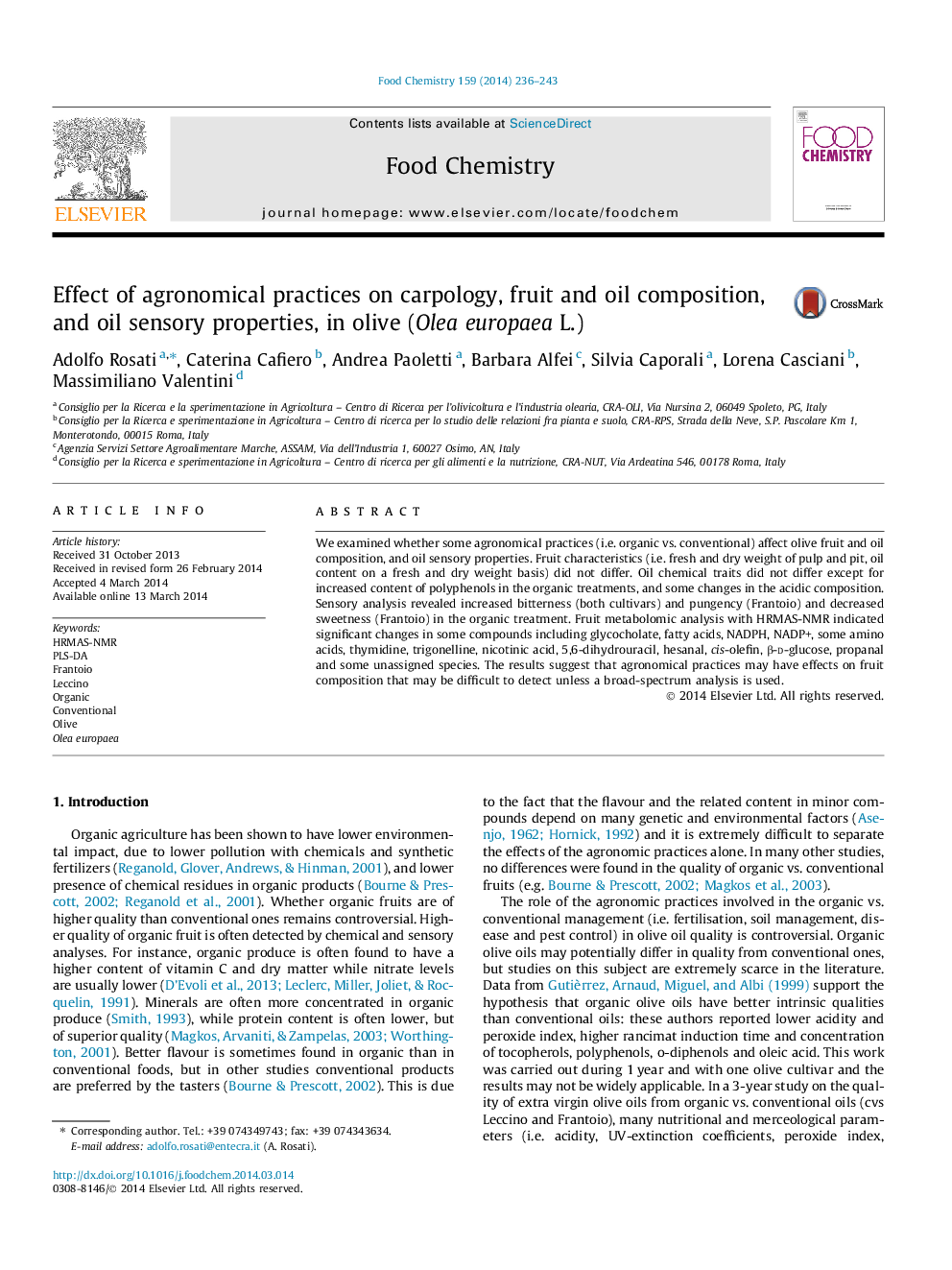| Article ID | Journal | Published Year | Pages | File Type |
|---|---|---|---|---|
| 7597552 | Food Chemistry | 2014 | 8 Pages |
Abstract
We examined whether some agronomical practices (i.e. organic vs. conventional) affect olive fruit and oil composition, and oil sensory properties. Fruit characteristics (i.e. fresh and dry weight of pulp and pit, oil content on a fresh and dry weight basis) did not differ. Oil chemical traits did not differ except for increased content of polyphenols in the organic treatments, and some changes in the acidic composition. Sensory analysis revealed increased bitterness (both cultivars) and pungency (Frantoio) and decreased sweetness (Frantoio) in the organic treatment. Fruit metabolomic analysis with HRMAS-NMR indicated significant changes in some compounds including glycocholate, fatty acids, NADPH, NADP+, some amino acids, thymidine, trigonelline, nicotinic acid, 5,6-dihydrouracil, hesanal, cis-olefin, β-d-glucose, propanal and some unassigned species. The results suggest that agronomical practices may have effects on fruit composition that may be difficult to detect unless a broad-spectrum analysis is used.
Related Topics
Physical Sciences and Engineering
Chemistry
Analytical Chemistry
Authors
Adolfo Rosati, Caterina Cafiero, Andrea Paoletti, Barbara Alfei, Silvia Caporali, Lorena Casciani, Massimiliano Valentini,
